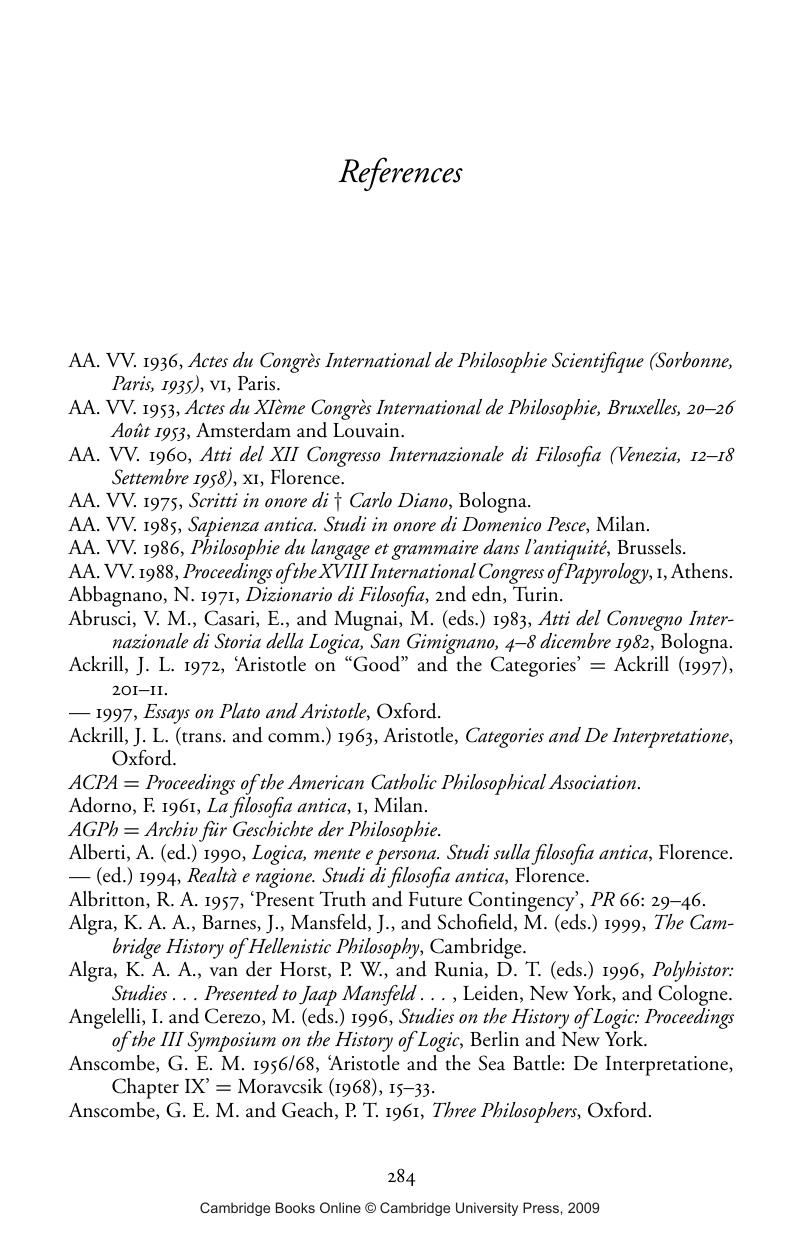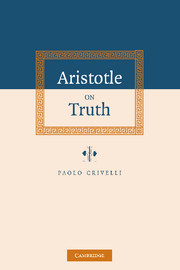Book contents
- Frontmatter
- Contents
- Acknowledgements
- Notes on the text
- List of abbreviations of titles of Aristotle's works
- Introduction
- Part I BEARERS OF TRUTH OR FALSEHOOD
- Part II ‘EMPTY’ TERMS
- Part III TRUTH AND TIME
- Appendix 1 Metaph. Θ 10, 1051b1: the text
- Appendix 2 Metaph. Θ 10, 1051b2–3: the text
- Appendix 3 Int. 7, 17b16–18: the text
- Appendix 4 The two-place relations in Aristotle's definition of truth
- Appendix 5 Aristotle's theory of truth for predicative assertions: formal presentation
- Appendix 6 The failure of bivalence for future-tense assertions: formal presentation
- References
- Index of names
- Index of subjects
- Index of passages
- References
References
Published online by Cambridge University Press: 22 September 2009
- Frontmatter
- Contents
- Acknowledgements
- Notes on the text
- List of abbreviations of titles of Aristotle's works
- Introduction
- Part I BEARERS OF TRUTH OR FALSEHOOD
- Part II ‘EMPTY’ TERMS
- Part III TRUTH AND TIME
- Appendix 1 Metaph. Θ 10, 1051b1: the text
- Appendix 2 Metaph. Θ 10, 1051b2–3: the text
- Appendix 3 Int. 7, 17b16–18: the text
- Appendix 4 The two-place relations in Aristotle's definition of truth
- Appendix 5 Aristotle's theory of truth for predicative assertions: formal presentation
- Appendix 6 The failure of bivalence for future-tense assertions: formal presentation
- References
- Index of names
- Index of subjects
- Index of passages
- References
Summary

- Type
- Chapter
- Information
- Aristotle on Truth , pp. 284 - 312Publisher: Cambridge University PressPrint publication year: 2004



